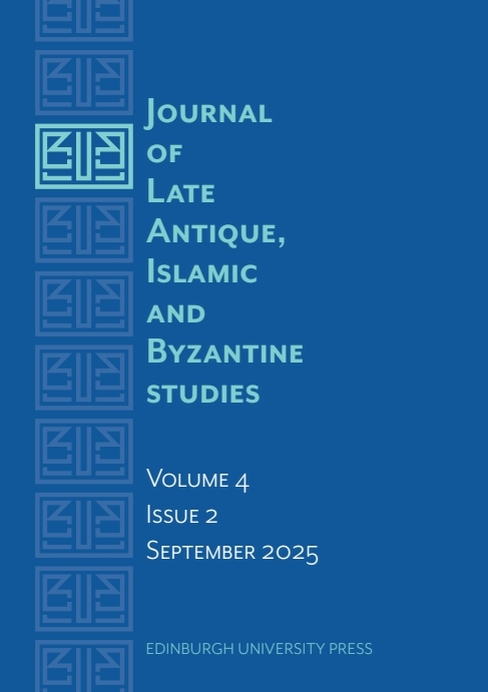
By Aliya A Ali

Aliya A Ali is the author of ‘Family ties and political power: Governing Kūfa under ʿUthmān b. ʿAffān‘ in the latest issue of the Journal of Late Antique, Islamic and Byzantine Studies.
When we think about political power, we often imagine formal institutions, clear hierarchies and state structures. But in early Islam, family ties and kinship networks were at the heart of politics. My recent article in the Journal of Late Antique, Islamic and Byzantine Studies explores the city of Kūfa under the caliph ʿUthmān b. ʿAffān, showing how appointments, dismissals and even civil conflict were tied to marriage alliances and family loyalties. In this blog, I want to expand on those themes and reflect on what kinship and political power in early Islam can teach us about leadership and loyalty.
Kinship as politics
Kūfa was one of the most turbulent cities of the early Islamic empire. Governors came and went at dizzying speed, often dismissed not for incompetence but because they had become too well connected locally. When a governor’s family ties in Kūfa grew strong enough to threaten the caliph’s authority, he was replaced. In other words, kinship was not separate from politics — it was politics.
Women’s strategic roles
Although the governors were all men, elite women appear throughout the genealogical sources. Their marriages, divorces and remarriages were crucial for shifting alliances. A single marriage could bring two tribes into cooperation; a divorce could undo years of careful political balancing. Far from being passive, women were active participants in the political process, navigating and reshaping networks of power.
Why Kūfa matters
Focusing on Kūfa allows us to see the bigger picture of early Islamic history. This city became a flashpoint for opposition to ʿUthmān and a stage for some of the tensions that led to the first civil war, the Fitna (656 CE). Looking closely at who was appointed governor, and why they were dismissed, helps us understand how fragile the balance of power was. It also shows how marriage and kinship were used as tools of governance long before the rise of the Umayyad and ʿAbbāsid dynasties.
Researching kinship and power
This project involved building a prosopographical database — essentially, a collective biography of the governors and their families. By tracing their marriages, tribal backgrounds and kinship networks, patterns began to emerge. It became clear that political authority was less about ideology or centralised control and more about negotiating loyalties through family. I was fortunate to have the opportunity to travel in search of manuscripts, visiting the Beinecke Library at Yale, the Süleymaniye Library in Istanbul and the National Library in Tunis. Often, I found myself consulting works that hadn’t been touched since they first entered the collections — a rare and humbling experience.
What this tells us today
Looking back at the seventh century reminds us that politics has always been personal. Leadership was about managing relationships, balancing loyalties and keeping networks in check. While the structures of governance may have changed over time, the importance of trust, kinship and personal ties remains a constant theme in political life.
Explore the full article ‘Family ties and political power: Governing Kūfa under ʿUthmān b. ʿAffān‘ in issue 4.2 of the Journal of Late Antique, Islamic and Byzantine Studies.
About the author
Aliya Abdukadir Ali is an Ian Karten Scholar and a Research Affiliate at the Woolf Institute. She recently completed her PhD in early Islamic history at the University of Cambridge (Faculty of Asian and Middle Eastern Studies), which she passed with no corrections. Her research focuses on kinship, governance and the role of elite women in the political structures of the first/seventh-century caliphates.






